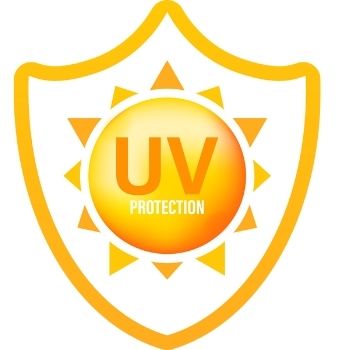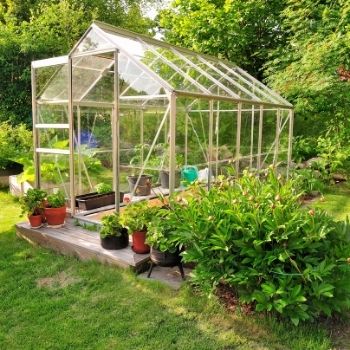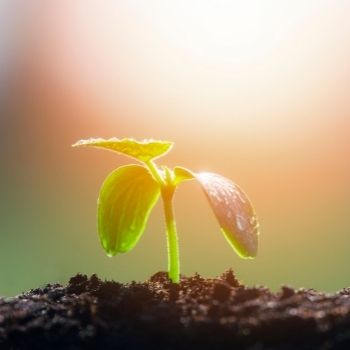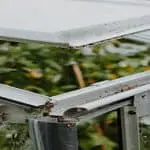Greenhouses are a popular way to extend the growing season for gardeners. But do greenhouses actually block UV rays? And if they do, is that a good thing?
While this issue of whether or not to block UV rays is contentious, it is true that certain greenhouse materials will block certain kinds of UV light. For example, some greenhouse glass blocks 96% of UV-B radiation while only blocking 25-35% of UV-A.
In this post, we’ll take a look at how greenhouse construction affects UV exposure and what that means for the plants inside.
- Do Greenhouses Block UV Rays
- Does greenhouse glass block UV rays
- Does greenhouse polycarbonate block UV
- Do plants need UV light in the greenhouse
- Why do different gardeners choose to block different amounts of UV light
- Can UV rays harm plants
- Should we try and block UV rays from entering our greenhouse
- Do seedlings need UV light
- Can you get sunburnt through a greenhouse
- Can you get vitamin D in a greenhouse
- All in All
Do Greenhouses Block UV Rays
As anyone who’s ever stepped foot outside on a sunny day knows, UV rays from the sun can be pretty intense. But what about those delicate plants that we love so much? Are they safe from harmful UV rays when they’re inside a greenhouse?

The short answer is yes, greenhouses do block UV rays. The long answer is a bit more complicated.
You see, there are actually two types of UV rays that come from the sun: UVA and UVB.
- UVA rays make up the majority of the sun’s UV radiation and they’re the type that causes skin aging and wrinkles.
- UVB rays, on the other hand, are responsible for sunburns.
So which type of UV rays does a greenhouse block?
Well, it depends on the material the greenhouse is made out of. Most greenhouses are made with polycarbonate, which does a pretty good job of blocking UVA rays. However, they don’t do as good of a job at blocking UVB rays.
That means that your plants are safe from harmful UVA rays when they’re inside a greenhouse, but they may still be susceptible to sunburn if they’re exposed to direct sunlight for too long.
If you’re concerned about your plants getting too much sun exposure, you can always purchase a greenhouse that’s made with special UV-blocking material. This type of greenhouse will provide your plants with the protection they need from both UVA and UVB rays.
Does greenhouse glass block UV rays
Yes, some greenhouse glass blocks UV rays. Greenhouse glass is specially designed to allow visible light while blocking UV rays. This helps to create an optimal growing environment for plants.
Let’s look at what UV light is blocked by greenhouse glass pannels.

The UV (320 to 400 nm) and visible wavebands (400 to 700 nm) of solar radiation in a glass greenhouse are present.
However, since the filtering qualities of the glass block UVB radiation (280-320 nm), there is no significant UVB in a glass greenhouse.
The irradiances of the wavebands are lower than those found outside the greenhouse, especially when greenhouses with a glass roof are covered by shade cloth.
Does greenhouse polycarbonate block UV
Yes, some greenhouse polycarbonate partially blocks UV while others fully block UV rays.
Plastic greenhouses like those from Polycarbonate, or polyethylene greenhouses can block up to 95% of UV radiation (UV) transmission, while specific UV-absorbing films may absorb all UV radiation.
This is beneficial because it can help to extend the life of plants and protect them from damage. Additionally, it can help to keep the greenhouse cooler in the summer months.
Do plants need UV light in the greenhouse
Yes, plants need UV light for several reasons. So, how does UV light affect plant growth?

First, UV light helps plants produce more chlorophyll, which is necessary for photosynthesis.
Second, UV light helps plants produce more carotenoids, which are important for plant health and growth.
Third, UV light helps plants ward off diseases and pests. Finally, UV light helps plants grow faster and healthier.
Why do different gardeners choose to block different amounts of UV light
Different gardeners choose to block different amounts of UV light because they have different goals for their plants.
Some gardeners want their plants to grow as quickly as possible and live longer, so they allow more UV light to reach the plants.
Other gardeners want their plants to produce more fruit or flowers, so they block more UV light in order to force the plants to focus their energy on producing these things.
Still, other gardeners simply want their plants to look healthy, so they allow a moderate amount of UV light to reach the plants.
Recent studies have shown that UV light is important for plant growth and quality. UV-A radiation (340-400 nm) is especially beneficial, as it helps plants produce chlorophyll and carry out photosynthesis.
ultimately, it is up to the gardener to decide how much UV light their plants should be exposed to. There is no right or wrong answer, and different.
Can UV rays harm plants
The question of harm to plants done by UV rays all revolves around one question: what kinds of UV rays are we talking about?
With regard to UV-A, you don’t have much to worry about. You’ll notice that even the high-blockage greenhouse materials we mentioned at the beginning of the article don’t concern themselves so much with blocking UV-A.
UV-B rays, on the other hand…
According to a NASA-affiliated website, overexposure to UV-B rays can impair photosynthetic activity in plants, hindering their ability to create the energy they need to survive.
This results in less plant growth, which will result in a smaller-than-desired yield for gardeners with bigger goals. You can see why some gardeners might want to block out UV-B rays in this case.
However, the jury is far from out on the UV-B issue. According to another study, UV-B, in conjunction with UV-A, can actually help stimulate photosynthesis. This would result in the exact opposite outcome from what was suggested in the NASA article- greater growth and greater yields. So what’s up- why all the difference in opinion?
One has to remember that the sciences are a touchy field. What’s discovered one day may be contradicted the next day, and what’s considered cutting-edge research today may be history tomorrow.
Should we try and block UV rays from entering our greenhouse
This is a difficult question to answer. As we said before, different gardeners have different goals, and what might work for one might not work for another.
Yes, and no. If you’re letting your plants receive the full battery of the light spectrum, and you’re getting tiny yields and pitiful growth, then you might try a UV-blocking material or a shade cloth (Amazon link).
On the flip side of that coin, you may want to try a more permissive solution with UV rays if your greenhouse is a high-tech space-age masterpiece, but you’re still not getting higher yields. Play around with your UV-blockage. Become a mini scientist. Have fun, just as you always do when you’re in the garden.
It’s really up to you and what you want to achieve with your plants. There is no right or wrong answer, so do whatever you think is best for your plants.
Do seedlings need UV light
Yes, seedlings need UV light in order to grow properly. UV light helps them to produce chlorophyll, which is essential for photosynthesis. Without enough UV light, seedlings will not be able to produce enough food for themselves and will eventually die.

Can you get sunburnt through a greenhouse
No, you cannot get sunburnt through a greenhouse. The glass in the greenhouse filters out the ultraviolet rays (UVB rays) that cause sunburn.
However, you can get sunburned if you are in a greenhouse and the sun is shining directly on you, as the UV rays will not be filtered out. If you are in a greenhouse and the sun is shining directly on you, make sure to wear sunscreen.
Can you get vitamin D in a greenhouse
Yes, you can get vitamin D in a greenhouse. The sun’s ultraviolet (UV) rays can penetrate the glass and provide the same benefits as being outdoors.
We get vitamin D from UVB rays between the wavelengths of 290 and 315 n. However, you will need to spend more time in the greenhouse to get the same amount of vitamin D as you would from being outside.
All in All
All in all, the question, do greenhouses block UV rays is a complicated one. On the one hand, yes, they could, but that depends on whether or not you build them with UV-blocking in mind. On the other, you could undoubtedly make a UV-permitting greenhouse if that’s what you think works.







